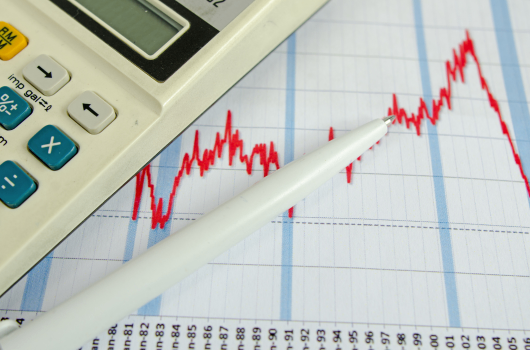Inflation fell to 2.3% in January
Economic commentary by Jakub Seidler, Chief Economist of the CBA

January's annual inflation came in at 2.3 %, well below the consensus market estimate (2.9 % yoy according to Reuters) but also below the CNB's estimate (3 %), the lowest since March 2021. Month-on-month prices rose by 1.5 % against analysts' expectations of 2 % (see Chart 1). Thus, year-on-year inflation has fallen noticeably from December's 6.9% and 4.2%, respectively, after taking into account the lower comparative base from the end of 2022 due to the Savings Tariff.
Last year, month-on-month inflation was 6% in January, but half of the month-on-month increase was driven by the end of the Savings Tariff; without its impact, it would have been 3.4 %. In 2022, it was then 4.4 % and the long-run average for 2010-2020 is 0.9 %. From this perspective, it is thus clear that this January revaluation was already significantly weaker than in the previous two years, although it remains slightly higher in terms of the longer-term average. The most striking difference in this January's revaluation compared to the long-term average was seen in the clothing and footwear category, where prices have typically fallen more in January, and in alcoholic beverages and tobacco, where, however, the increase in excise duties has been reflected this year, while housing, health and food prices have also risen faster (Chart 2).
The main inflationary factor in terms of January's month-on-month development was energy prices, which rose by 7.5% month-on-month, electricity prices by 12%, natural gas prices by 3.6% and heating prices by 3.2%. Overall, housing-related prices were the most significant factor in January, contributing half of the month-on-month inflation. The next most noticeable inflationary factor was the price of alcoholic beverages and tobacco (+9% mom), where the rise in excise duties was reflected (see Table 1, top part). Prices of imputed rents, but also food and clothing prices were anti-inflationary (see Table 1, bottom).
From an annual perspective, a number of items were anti-inflationary in January, thanks to the high comparison base from last year. In particular, energy prices, which "bit off" 3 percentage points from year-on-year inflation compared with December. Food prices were again anti-inflationary, deepening their year-on-year decline from 1% to almost 5% in January.
Services prices rose by 1.3% month-on-month in January (1.9% a year ago, 2.2% in 2022), while the long-term average for 2010-2020 is 1 %, and goods prices rose by 1.7 % (8.7 % last January and 8.7 % in 2022). 22 by 5.9), the average for 2010-2020 is 0.8 %.
For the whole of 2023, average inflation reached 10.7 %, and this year, according to current estimates, it should fall below the 3% threshold. While today's readings technically push estimates for this year lower, the risk is that the current moderation in food prices over the past two months will not continue and the anti-inflationary effect of food will ease in the months ahead. A further risk is that some businesses did not want to pass on all costs in a leap to January prices and will increase them gradually over the coming months. Even so, this year's average inflation should already be within the CNB's tolerance band, although it may get slightly above 3 % again at the end of the year.
With weaker January figure, CNB might accelerate rates decline, but not significantly because of the weakening crown. The koruna approached CZK 25.5 per euro today due to lower inflation. This factor will hamper the CNB's willingness to cut interest rates faster. Governor Michl also expressed himself in this vein shortly after the lower inflation was published, reiterating that the Board would cut rates further cautiously.